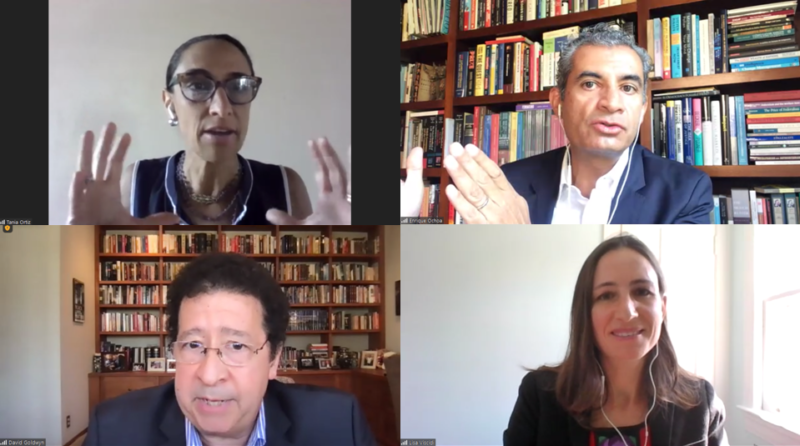Mexico: How Far Have its Institutions Really Come?
The question remains if Mexico has achieved a degree of institutional development consistent with its participation in those organizations.
The energy markets of the United States and Mexico are deeply integrated, to the benefit of both countries and their economies. US-Mexico energy trade and cross-border investments are vital elements of the oil and gas and power industries in both countries, a reality recognized and protected by the US-Mexico-Canada Agreement. The new US administration has a clear interest in preserving and expanding this fruitful relationship while advancing its ambitious clean energy and climate goals, both at home and abroad.
On March 11, the Inter-American Dialogue held a private virtual roundtable on US-Mexico energy cooperation featuring Tania Ortiz Mena, CEO of IEnova and Dialogue member; Enrique Ochoa Reza, federal congressman and member of the Energy Committee of the Mexican Chamber of Deputies; and David Goldwyn, president of Goldwyn Global Strategies and a top international energy official during the Obama and Clinton administrations. Lisa Viscidi, director of the Energy, Climate Change & Extractives Industries Program at the Inter-American Dialogue, moderated the discussion.
The meeting sought to explore strategies for the new US administration to productively engage with the Mexican government to bolster the North American energy industry, heighten energy security on both sides of the border, advance clean energy and emissions reductions, and pursue common interests. Participants included US government officials and congressional staff, representatives of energy companies from the US and Mexico, and other experts.
The question remains if Mexico has achieved a degree of institutional development consistent with its participation in those organizations.
Focusing on transnational crime is a top priority of the Obama administration’s policy in Latin America.
As global temperatures continue to rise with the global community stalled on any way to stop them, countries must prepare to adapt to increasingly volatile environmental conditions.
